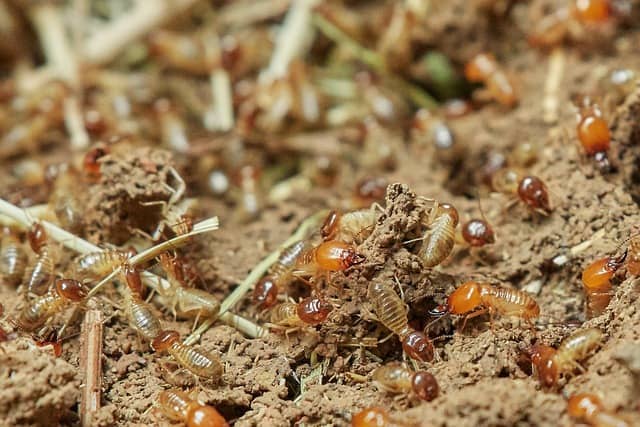
Termites are well known for their ability to cause significant structural damage, but another lesser-known aspect of these pests is the odour they can emit. While termites are usually associated with wood destruction, some homeowners and business owners in Singapore may notice a distinctive smell when these insects infest a property. In this article, we’ll explore whether termites cause a smell and how this odour can be a warning sign of an infestation.
Do Termites Give Off an Odor?
Yes, termites do produce a smell, but the odour is not always easily detectable. The smell comes from a combination of their bodily secretions, faecal matter, and the wood they consume. Additionally, the chemical pheromones termites released to communicate within the colony can contribute to the distinct odour in a heavily infested area. The strength of the smell often depends on the size of the termite colony and the length of the infestation.
The Type of Odor Termites Emit
The smell associated with termites is often described as musty or mouldy. This odour is sometimes compared to the smell of mildew or damp wood. When termites break down wood, they create an environment that retains moisture, which can result in a musty smell, especially in closed spaces like attics or basements.
Additionally, termite droppings (also known as frass) can contribute to the odour. Frass is often found near wood they have been damaged and may give off a dry, wood-like scent mixed with a faint mouldy aroma. The combination of termite activity and their waste materials can produce an earthy, unpleasant odour.
How Does the Smell Signal a Termite Infestation?
In Singapore’s tropical climate, termites are a common pest. Homeowners may first detect an infestation by the smell of termites before they see visible damage. The smell can serve as a subtle indicator that termites are present in hidden areas, such as inside walls, beneath floors, or in the foundation.
If you notice a persistent musty smell in areas where wood is present, it could indicate termite activity, especially if it is accompanied by other signs like discarded wings, mud tubes, or hollow-sounding wood. Unlike pests such as rodents or cockroaches, termites typically remain hidden, so the smell may be one of the few early clues to their presence.
Dampwood and Subterranean Termites
Different species of termites produce different levels of odour. In Singapore, the most common types of termites are subterranean and dampwood termites. Subterranean termites often cause the most damage due to the size of their colonies and their ability to infiltrate structures from underground. These termites may leave behind a stronger musty odor due to their large colonies and constant movement between the soil and wood.
Dampwood termites, on the other hand, are more commonly associated with wet or decaying wood. Because of the high moisture content, dampwood termites can contribute to a more intense musty or damp smell.
What to Do if You Smell Termites
If you suspect a termite infestation due to a strange odour, it is essential to take immediate action. Contacting a termite control specialist in Singapore can help you confirm the presence of termites and prevent further damage to your property. Termite infestations, when left untreated, can cause severe structural damage that may be costly to repair.
In conclusion, while termites do cause a smell, the odour is subtle and often associated with the damp, musty environment they create. If you detect such a smell, along with other signs of infestation, it may be time to call in a professional to address the issue before it worsens.
